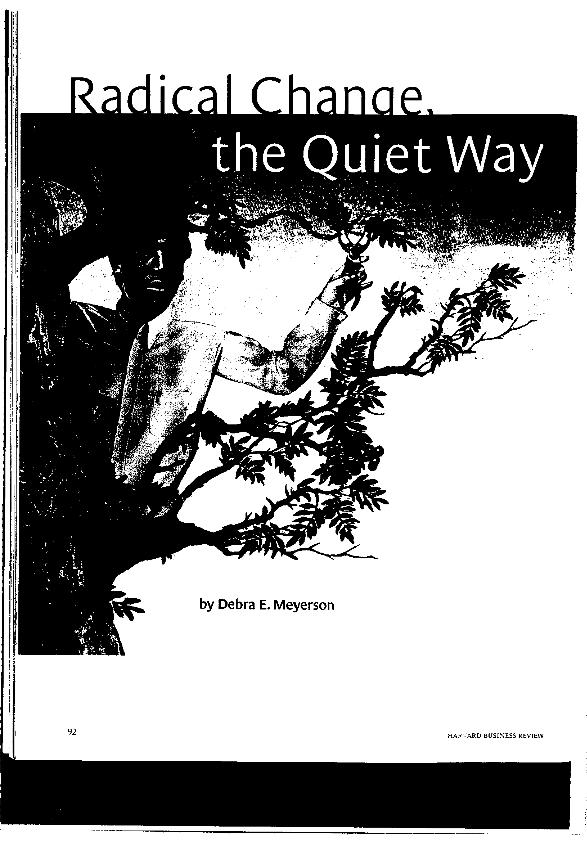Radical change, the quiet way

Contenido multimedia no disponible por derechos de autor o por acceso restringido. Contacte con la institución para más información.
| Tag | 1 | 2 | Valor |
|---|---|---|---|
| LDR | 00000nab a2200000 i 4500 | ||
| 001 | MAP20071502294 | ||
| 003 | MAP | ||
| 005 | 20080418123232.0 | ||
| 007 | hzruuu---uuuu | ||
| 008 | 020321e20011001usa|||| | |00010|eng d | ||
| 040 | $aMAP$bspa | ||
| 084 | $a922.3 | ||
| 100 | 1 | $0MAPA20080226206$aMeyerson, Debra E. | |
| 245 | 1 | 0 | $aRadical change, the quiet way$cby Debra E. Meyerson |
| 520 | $aMeyerson has identified four incremental approaches that managers can quietly use to create lasting cultural change. Most subtle is disruptive self-expression in dress, office decor, or behavior, which can slowly change an unproductive atmosphere as people increasingly notice and emulate it. By using verbal jujitsu, an individual can redirect the force of an insensitive statement or action to improve the situation. Variable-term opportunists spot, create, and capitalize on short- and long-term chances for change. By adjusting these approaches to time and circumstance, tempered radicals work subtly but effectively to alter the status quo. In so doing, they exercise a form of leadership that is more modest and less visible than traditional forms yet no less significant. Top managers who want to create cultural or organizational change perhaps they're moving tradition-bound businesses down new roads should seek out these tempered radicals, for they are masters at transforming organizations from the grass roots | ||
| 650 | 1 | 1 | $0MAPA20080621452$aGestión de recursos humanos |
| 650 | 0 | 1 | $0MAPA20080598877$aSatisfacción laboral |
| 650 | 1 | 1 | $0MAPA20080587475$aRelaciones humanas |
| 650 | 1 | 1 | $0MAPA20080555061$aManagement |
| 650 | 1 | 1 | $0MAPA20080577230$aPolítica laboral |
| 650 | 0 | 1 | $0MAPA20080590048$aCultura empresarial |
| 740 | 0 | $aHarvard business review | |
| 773 | 0 | $wMAP20077100345$tHarvard business review$dBoston$gOctober 2001 ; p. 92-100 |

